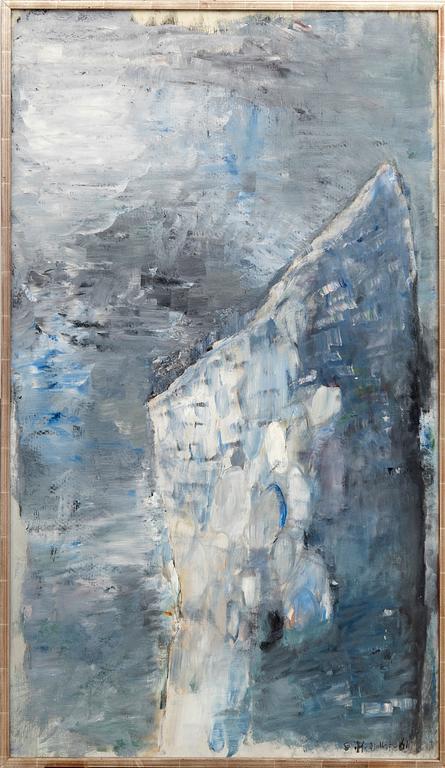Staffan Hallström
Staffan Hallström, oil on canvas, signed and dated 61.
"Klippor", 135x75 cm
Insignificant wear.
Exhibitions
Gummesons Art Gallery, Stockholm 1961
Artist
Stephan Hallström supported his painting style with a strong expressive foundation. His paintings arose partly through its materials, but also through his inner psyche. The motifs took shape slowly and rather painstakingly. He revised, sketched anew, and painted over until he finally found a composition and color scheme that had the balance and expression he was seeking. Hallström drew inspiration from Delacroix, Rubens, Goya, and Hill's disease drawings. There is also a trace of Giacometti's drawing of figures and the depiction of intense emotional states.
In Hallströms art the sketching process is very important and his paintings radiate as much line work as painterly poetry. For the artist, revisions were crucial to the final result, and the fact that the creative process is allowed to remain in the finished work makes his paintings still feel very present.
The first version of "Ingens hundar" came in 1953. The artist personifies the dogs which have grouped themselves to protect each other from the greater world. Tall and alert, the dogs raise their gaze to their surroundings and they sniff as much danger as fresh morning air. In this tension of opposites, we find the synthesis of Hallström's painting.
Stig Johansson writes in his book about Staffan Hallström "The ideas and emotional states that drove the creation of "Ingens hundar" made these paintings some of the most original in Swedish art. His motifs and visual concepts remain so unique that they can hardly be compared to anything else."
Read more





































